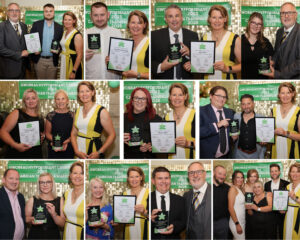The Green Revolution in Wales: Sustainable Business Practices for a Brighter Future

Wales is experiencing a significant shift, positioning itself as a leader in sustainable business practices.
This transformative movement is not just a trend but is quickly becoming a core part of the Welsh business ethos, spanning across the spectrum from agile startups to well-established giants. The ambition driving this change is multifaceted: it’s about aligning the pursuit of economic success with a commitment to environmental care.
This approach aims to ensure that business growth and ecological conservation go hand in hand, paving the way for a future where Wales’s economy flourishes without compromising the health of the planet.
Sustainable Practices Across Industries
In Wales, the shift towards sustainability spans various industries, each adopting practices that not only benefit the environment but also enhance their operational efficiency.
In agriculture, the move towards organic farming is more than a trend; it’s a commitment to preserving soil health and promoting biodiversity, which in turn supports more resilient and productive farming systems.
The manufacturing sector is also seeing a revolution, with companies investing heavily in renewable energy and streamlining their supply chains to minimise waste and reduce carbon emissions.
This holistic approach to sustainability is reshaping the industry, making it more sustainable and future-proof.
Technology and Sustainability
The technology sector in Wales is at the forefront of merging innovation with sustainability.
Welsh tech companies are creating cutting-edge solutions, from applications that help individuals reduce their environmental impact to sophisticated systems that enhance energy efficiency in buildings and industries. This blend of technology and environmental consciousness is not just making sustainability more accessible; it’s positioning Wales as a leader in green tech innovation.
These developments are pivotal, showcasing how technology can be a powerful ally in the fight against climate change and a driver of sustainable growth.
The Role of Objectives and Key Results (OKRs)
The role of Objectives and Key Results (OKRs) in Welsh businesses is becoming increasingly pivotal in ensuring sustainability efforts are both strategic and effective. This framework empowers companies to define clear, ambitious yet achievable goals in areas critical to sustainability, like waste reduction and boosting renewable energy use.
If you’re looking for an example of an OKR, you can discover all of the information you need with the help of OKR consultancy, 1ovmany. You will soon discover that the strength of OKRs lies in their ability to make objectives quantifiable, thus allowing companies to track progress with precision.
Through regular reviews and adjustments based on these measurable outcomes, businesses are better positioned to refine their strategies, ensuring continuous progress toward their environmental goals.
Taking this kind of systematic approach not only facilitates targeted action but also embeds a culture of accountability and continuous improvement within organizations, driving them closer to their sustainability objectives.
Community and Sustainability
The heart of Wales’s green revolution lies in its community-driven ethos. The power of collective action is evident in numerous local initiatives, where businesses and residents come together to foster sustainability.
Whether it’s through establishing community gardens that provide fresh, local produce, or spearheading clean-up efforts for waterways, these community projects amplify the impact of individual efforts.
Such collaborative endeavours not only contribute to environmental preservation but also strengthen communal bonds, creating a shared sense of responsibility toward fostering a sustainable future.
Education for Sustainability
In Wales, the push for sustainability is extending into the realm of education, targeting both the workforce and the general public.
The increase in workshops, seminars, and courses dedicated to sustainable practices is a testament to the growing emphasis on environmental stewardship. These educational initiatives are designed to not only spread awareness but also to arm individuals with the necessary knowledge and skills to actively participate in creating a more sustainable future.
By integrating sustainability into the educational fabric, Wales is nurturing a society that values and practices green living, ensuring that every citizen can contribute to the nation’s environmental goals.
Challenges and Solutions
Welsh businesses are enthusiastic about adopting greener practices but face significant hurdles, such as the high costs associated with implementing sustainable technologies and a need for more supportive policies from the government.
To navigate these challenges, many are exploring innovative solutions, including new financing models that make it easier to invest in green technologies. Partnerships between businesses, financial institutions, and governmental bodies are also becoming more common, providing the support needed to overcome financial and regulatory barriers.
These collaborative efforts are crucial for enabling businesses to make the transition to more sustainable operations, ensuring that the green revolution in Wales can continue to gain momentum.
Looking to the Future
The green revolution in Wales is an ongoing journey. As businesses continue to innovate and adopt sustainable practices, Wales is setting a precedent for how regions can thrive economically while protecting the environment.
The commitment to sustainability seen across Welsh businesses is not just about meeting today’s needs but ensuring a vibrant, healthy Wales for generations to come.
In summary, the green revolution in Wales showcases the power of sustainable business practices. Through innovation, community collaboration, education, and strategic goal-setting with OKRs, Welsh businesses are building a future that promises economic prosperity and environmental health.
This movement is a testament to the idea that with the right approach, businesses can be a force for good, contributing to a brighter future for all.





